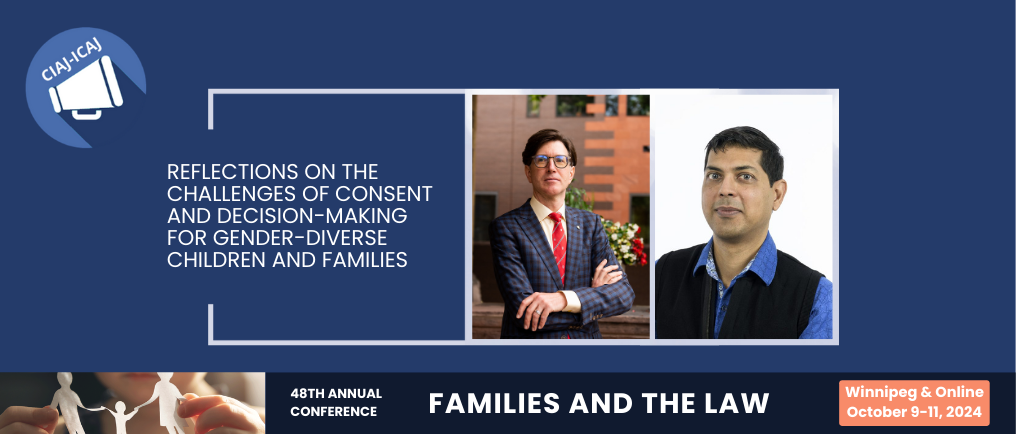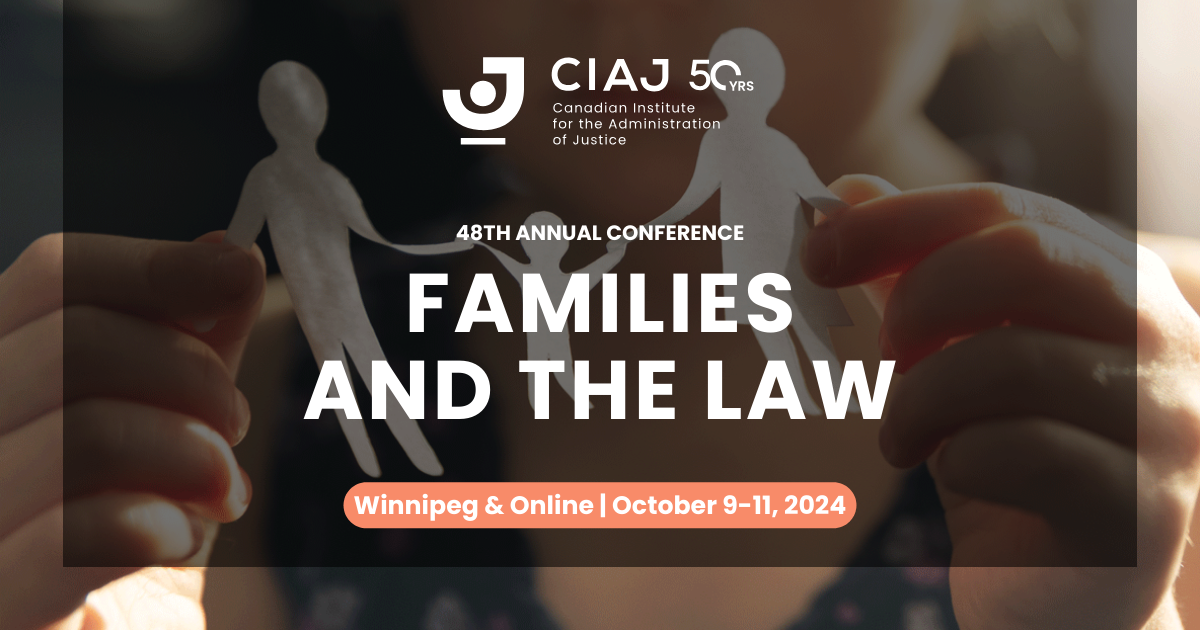Reflections on the Challenges of Consent and Decision-Making for Gender-Diverse Children and Families

As part of our 48th Annual Conference on Families and the Law, which will take place from October 9 to 11 in Winnipeg, a panel will be dedicated to the Challenges of Consent and Decision-Making for Gender-Diverse Children and Families.
In light of recent provincial policies concerning gender-diverse students, this panel will examine the legal, ethical, and personal implications related to parental consent requirements for these children and their families. The discussions will focus on the rights of children and parents, the socio-medical context of gender diversity, as well as the roles and responsibilities of school boards and various levels of government in decision-making regarding gender-diverse children.
To guide the discussions on this panel, moderator Robert Leckey, Dean and ull Professor & Samuel Gale Chair, Faculty of Law, McGill University, posed a question to our two panelists: Annie Pullen Sansfaçon, Associate Vice-Rector for Indigenous Relations, Professor, Canada Research Chair, and Dr. Shuvo Ghosh, MD, FAAP, Developmental-Behavioural Pediatrician, Montréal Children’s Hospital, McGill University Health Centre.
The question was as follows:
How do the recent policy changes regarding parental consent for the use of preferred pronouns and chosen names in schools relate to the issues you face in your professional activities?
Dr Shuvo Ghosh shares his initial reflections.
″Currently, in Québec, there are no proposals about this topic. Nonetheless, there is a government-appointed “Comité de sages” (Committee of Wisepeople) examining the issue of gender identity in Québec. We await their documents in 2025 with the hope that there will be no drastic recommendations to modify existing guidelines that support of gender non-conforming students. It is clear that this topic has been raised by several provincial governments as a question of parents’ rights, without a concomitant discussion about childrens’ rights (or more broadly, an individual’s rights).
As a clinician, these proposals do not change the professional approach to individually assessing each patient and family for needs to optimise the well-being of each minor who presents with gender non-conformity. But, when minors are forcibly “outed” to parents who are unsupportive, abusive, or potentially malicious in regards to any non-traditional gender identity, after speaking confidentially to a trusted adult (teacher, counsellor, school administrator, health care professional, or community elder), simmering mental health issues can become significantly more problematic or difficult to manage. Supportive parents notified of their minors’ request to use a preferred name or different pronoun in school would already be informed and from our clinical population it is evident that it is these parents, not the minor, who inform the school about the issue. Therefore, much of what is currently being discussed in terms of policy simply operationalises the kinds of conflict about gender identity that already exist within unsupportive families. We see similar disagreement between parents and their child on the issue of social transition or any medical intervention, even if a child is simply asking questions or exploring the topic. The removal of supportive school educators from any role in allowing students to express themselves freely outside of the home is questionable, as it begins to erode the role of educators to have any ability to instruct students on any topic or experience that differs from the one at home. Thus, this issue does not only affect us clinicians in our ability to support gender variant youth, but opens the door to other limitations or restrictions that could affect us from being able to work with educators when youth are at risk in their homes for other reasons (e.g., expressing feelings about being gay; being sexually active; experimentation with alcohol, tobacco, or cannabis; joining an after-school sport or activity that parents have hesitation about; discussing religions or belief systems that parents do not agree with, etc.).″
Discover Annie Pullen Sansfaçon’s reflections at the following link.

